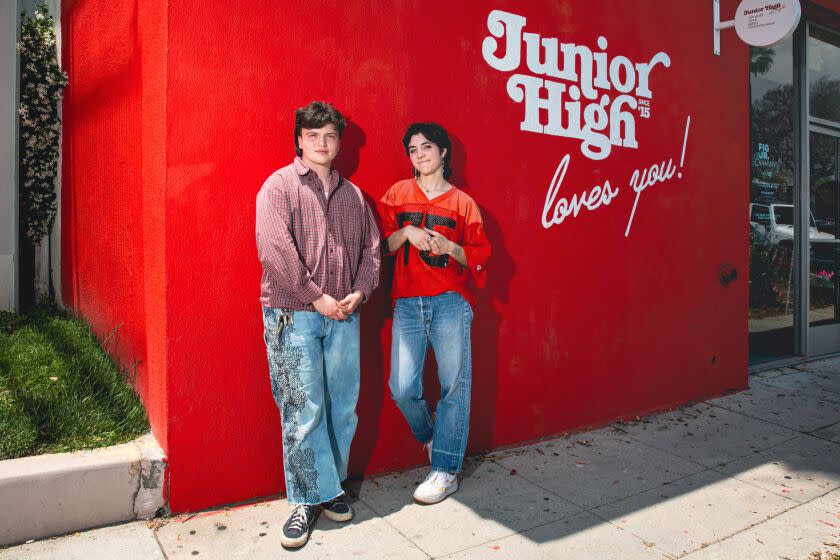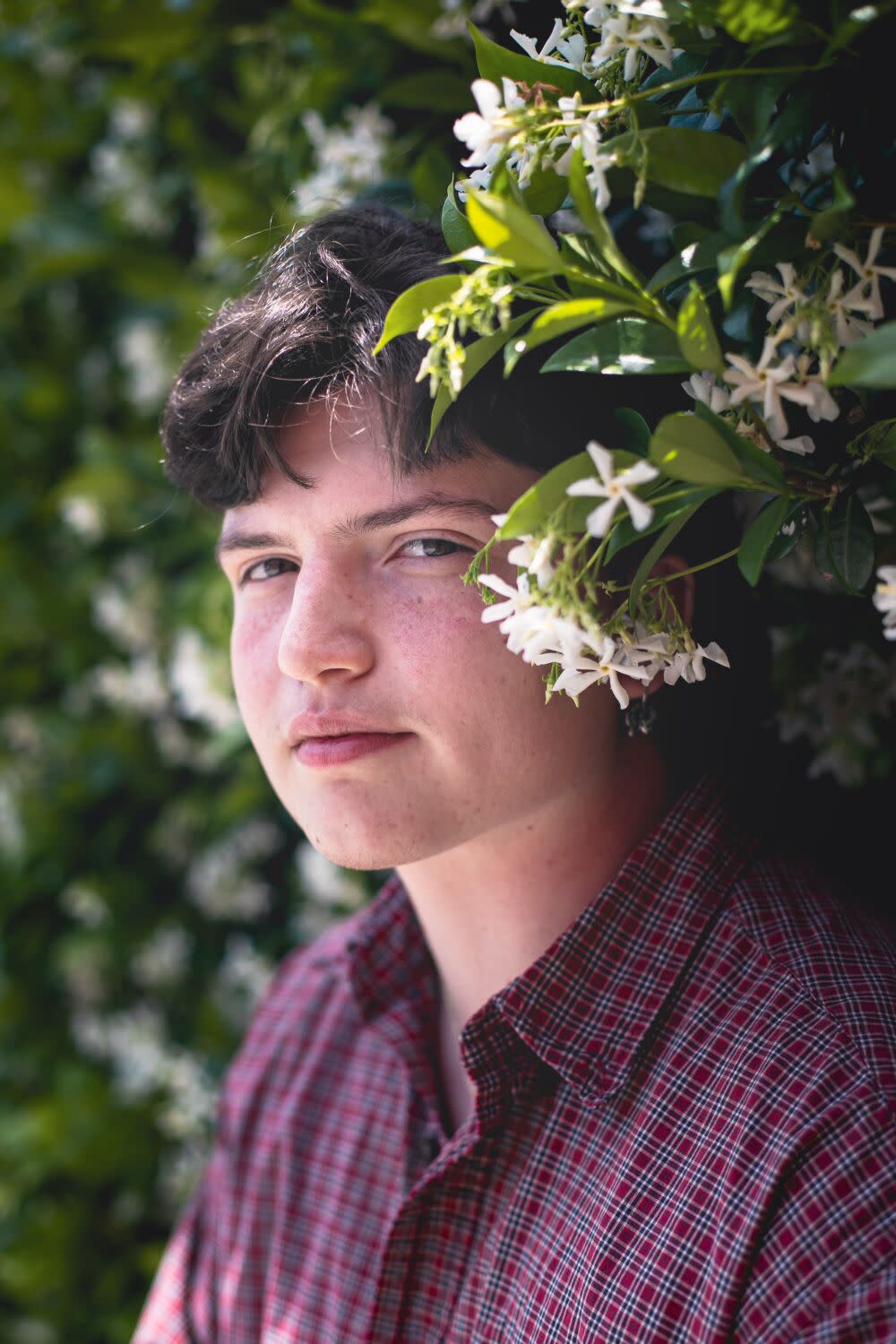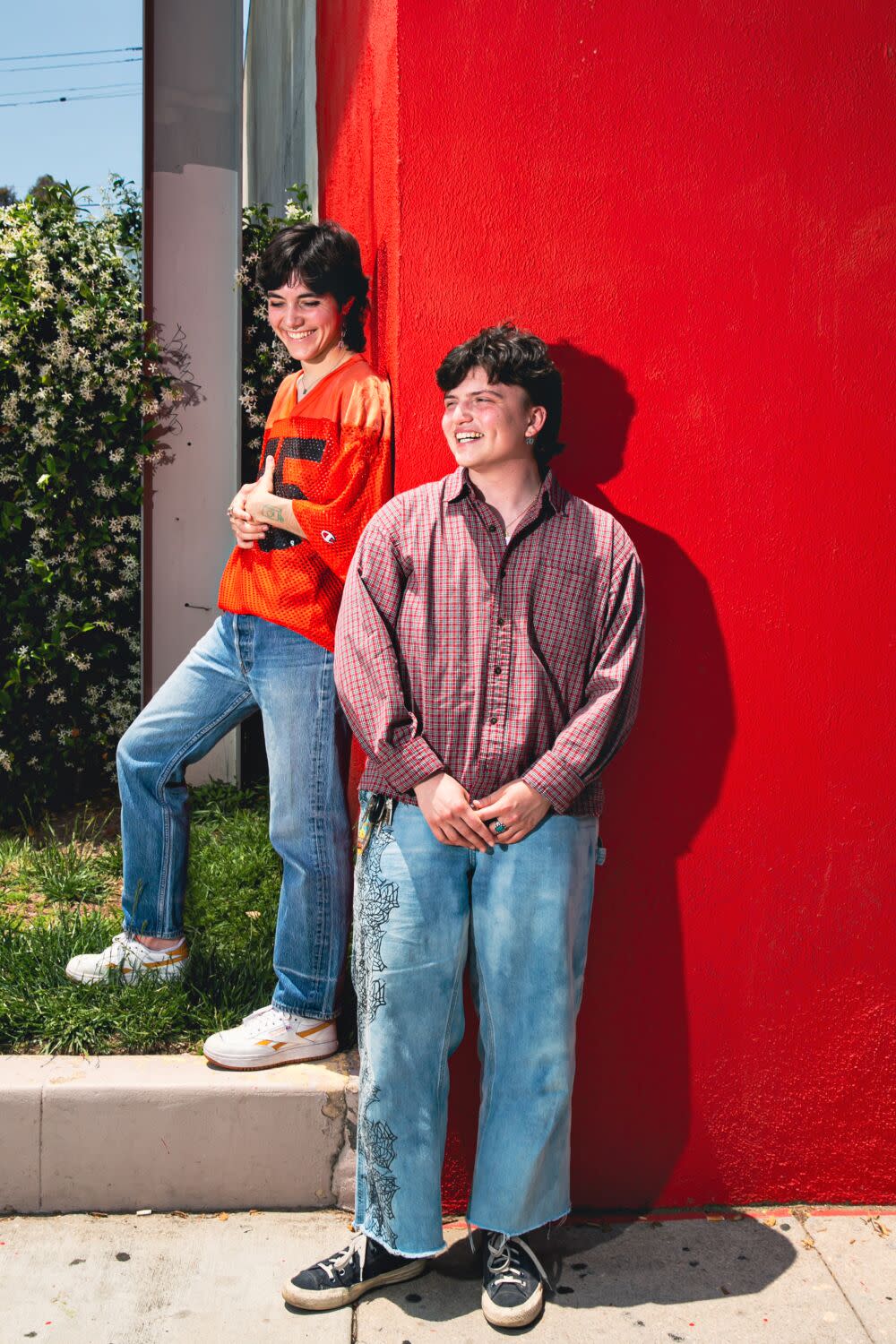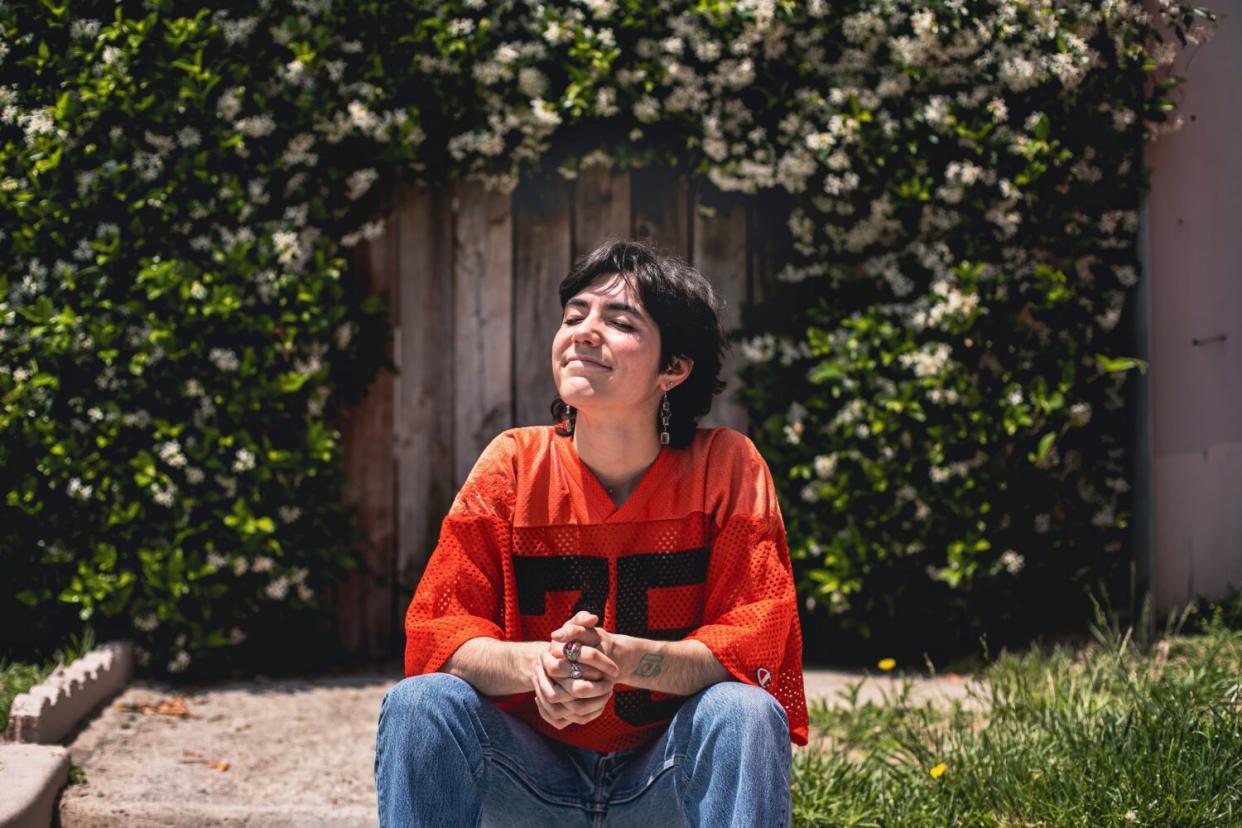Gender-affirming gear is hard to access for trans and nonbinary youth. Enter Trans Joy Fest

Sitting outside their apartment on a glittering Los Angeles morning, birds chirping in a cluster of trees behind them, Milan Alex Rafaelov describes the moment when they had simply had enough.
They could not access TransTape, a product that flattens the chest without constricting movement. It's considered an essential for trans and nonbinary people who play sports, dance or have active jobs. Additionally, unlike binders, the tape can get wet and remain on for several hours, enabling people to shower or swim without experiencing gender dysphoria.
However, there’s one problem: The product is almost exclusively available online. After taxes and shipping, getting a new package of TransTape every two weeks is time-consuming and costly, especially for Rafaelov, a student in their early 20s. Being unable to consistently access the product “was dictating my ability to go to class, to the gym, to do the most basic things,” they say.
They started to wonder if other trans and nonbinary youth experienced the same issue, particularly those who were unhoused or did not have a safe address to send gender-affirming items. Rafaelov dreamed of creating a space where young trans and nonbinary people could get these items with ease. The young activist points out that gender-affirming products for cisgender people are easily accessible in retailers like Costco. So why not binders, nipple guards and tape?

In a fit of productive frustration, they emailed Junior High, a nonprofit art space that opened in 2015 and is currently based in Glendale. Junior High has become a hub for youth-centered community organizing, and after months of back-and-forth with the organization’s events manager, Eden Hain, Rafaelov launched Trans Joy Fest late last year. The collective is part celebration, part mutual aid project, with the primary aim of providing free, gender-affirming gear to LGBTQ+ youth.
Their first event took place on June 3 at Junior High. Young people from around Los Angeles arrived to pick up free bundles of TransTape and lightly used garments including binders that had been donated by other attendees. The event provided a sense of respite and possibility — a rare place where queer and trans kids could gather with people who understood their journey.
“A lot of people have not done the work to deconstruct their gender,” says Gio Pineda, one of the event's youth organizers. “Do I enjoy being this gender? What does it mean to be this gender? It’s refreshing to be in a space with people who understand that process.”
For others, the chance to access free products in a joyful space was a relief. “I’ve had to save up on my own without the support of my parents,” said Katherine, a young person who asked to use their first name only due to not being out to their parents.
These products "have been super hard to access," says Katherine, who received a free roll of TransTape. “For some people, this is a matter of life or death.”
To close this gap, Trans Joy Fest has big dreams for the future. Rafaelov says their long-term goal is to bring more gender-affirming gear into bricks-and-mortar stores, particularly those owned by queer and trans people. They hope that this project will make it easier for young people to access needed products and promote feelings of self-love in the community. “These products enable you to walk through the world in a way that doesn’t make you feel like you have to hide,” they say.
Rafaelov notes that projects such as Trans Joy Fest demonstrate that no matter what is happening in the outside world to attack queer and trans people, “We can show up and support our own community.”

Therefore, grassroots efforts to ensure LGBTQ+ young people have access to gender-affirming products are more important than ever, says Rafaelov, who was partly inspired to start Trans Joy Fest after witnessing the escalation of anti-LGBTQ laws across the country.
In the first five months of 2023 alone, there have been almost 500 such laws introduced in state legislatures, according to the American Civil Liberties Union. These laws have limited access to books with gay characters and banned drag performances in public spaces. Most acutely, though, 19 states, including Florida, Texas and Arizona, have passed laws banning various forms of gender-affirming care for trans and nonbinary youth. (On June 6, a judge temporarily stayed Florida’s ban.)
According to the Trevor Project, the escalation of these laws has had devastating consequences. The nonprofit's 2022 National Survey on LGBTQ Youth Mental Health found that 45% of LGBTQ+ youth had seriously considered suicide in the past year, and one in five transgender youth had attempted it.
As the American Academy of Pediatrics states, these bills contradict medical best practices and exacerbate feelings of shame, isolation and depression. These anti-LGBTQ laws and the politicians behind them could be viewed by critics and some medical professionals as putting queer and trans children's lives in danger.
As a result of these high rates of suicidal ideation and stigma, organizers of Trans Joy Fest say building community in person is their top priority. “We all have a lot of queer and trans friends online,” says Pineda, “but not necessarily in person.”

This means many young people are forced to navigate questions of gender identity and sexual orientation on their own, says Marcos James, an activist, poet and organizer who produced the event on June 3. “I didn’t have anyone in my corner as a transmasculine person,” he says. “I don’t want other young people to feel like that.”
James says the pain of isolation for queer and trans youth is particularly challenging to address in a city the size of Los Angeles. Several organizers also pointed to the sense of aloneness they have often felt riding public transportation or going to class and the attendant desire to be in a space that centers their lived experience and dreams.
James hopes that Trans Joy Fest events will serve as a hub through which dozens of spokes of connection, joy and care might emerge. “I want people to feel like they have trans homies on La Cienega, in Watts,” he says. “And if they’re ever in a situation where they don’t feel safe or don’t know anyone, they know a friend from Trans Joy Fest.”

While the event at Junior High primarily focused on providing products such as TransTape for transmasculine people, organizers hope that future events will have a greater supply of transfeminine products such as swimsuits and bras. They also will continue to deepen their connection with queer- and trans-owned businesses to ensure young people have access to these products in person.
This commitment to community is woven into every element of Trans Joy Fest’s vision. Despite their challenges in California, Trans Joy Fest organizers are hyper-aware of the political reality unfurling in other states, where bans on gender-affirming care have taken effect and reports of families with trans children fleeing have escalated.
To support these families, Trans Joy Fest is fundraising for the Abbey Underground, an organization based in Tennessee that helps queer political refugees in the South. The goal is to provide resources for families to access gender-affirming care in states where it has been banned.
Trans Joy Fest also will donate a portion of its proceeds and clean gear to the Los Angeles LGBT Center's youth programs, which provides therapy, legal support and housing to queer and trans youth in Southern California. Making gender-affirming products available in person will help expand access for L.A.’s unhoused youth, Trans Joy Fest organizers say.

This is particularly important in California, which has some of the highest rates of homeless LGBTQ youth in the country. In Los Angeles County alone, LGBTQ youth make up almost 40% of the youth homeless population. Trans Joy Fest organizers wanted to ensure that all young people — no matter their housing status — can access gender-affirming gear, and it's often a matter of safety. “If I go out into the world without these things, I have to defend and explain my existence again and again,” says Rafaelov.
At such a politically fraught moment for the trans and queer community, Trans Joy Fest is one of several events, such as the recent Trans Prom event in Washington, D.C., and the June 8 Youth Pride Prom in Los Angeles, that have centered around celebration and joy. Given the toxic environment of anti-trans legislation that surrounds LGBTQ+ young people, ensuring they know they are loved as they are is a top priority for trans elders, parents and friends.
“The more depressing these laws get, the more hope is necessary to drive people to help themselves and to help each other,” said Fiona Pestana, another Trans Joy Fest organizer. This is partly why organizers decided to host their first event at Junior High during the daytime instead of at night. It is a symbol that hiding, stigma and shame have no place in the world they are building. Plus, as Pestana says, togetherness creates power. “Coming together helps us feel more human and gives us some life back to keep going and keep campaigning against this legislation,” they say.
In the end, the organizers of Trans Joy Fest hope to create spaces where trans young people can embody the full possibilities of their lives, no matter the harmful discourse that surrounds them. “It’s a haven where for a few hours, we can just be ourselves,” says Pestana.
This story originally appeared in Los Angeles Times.
